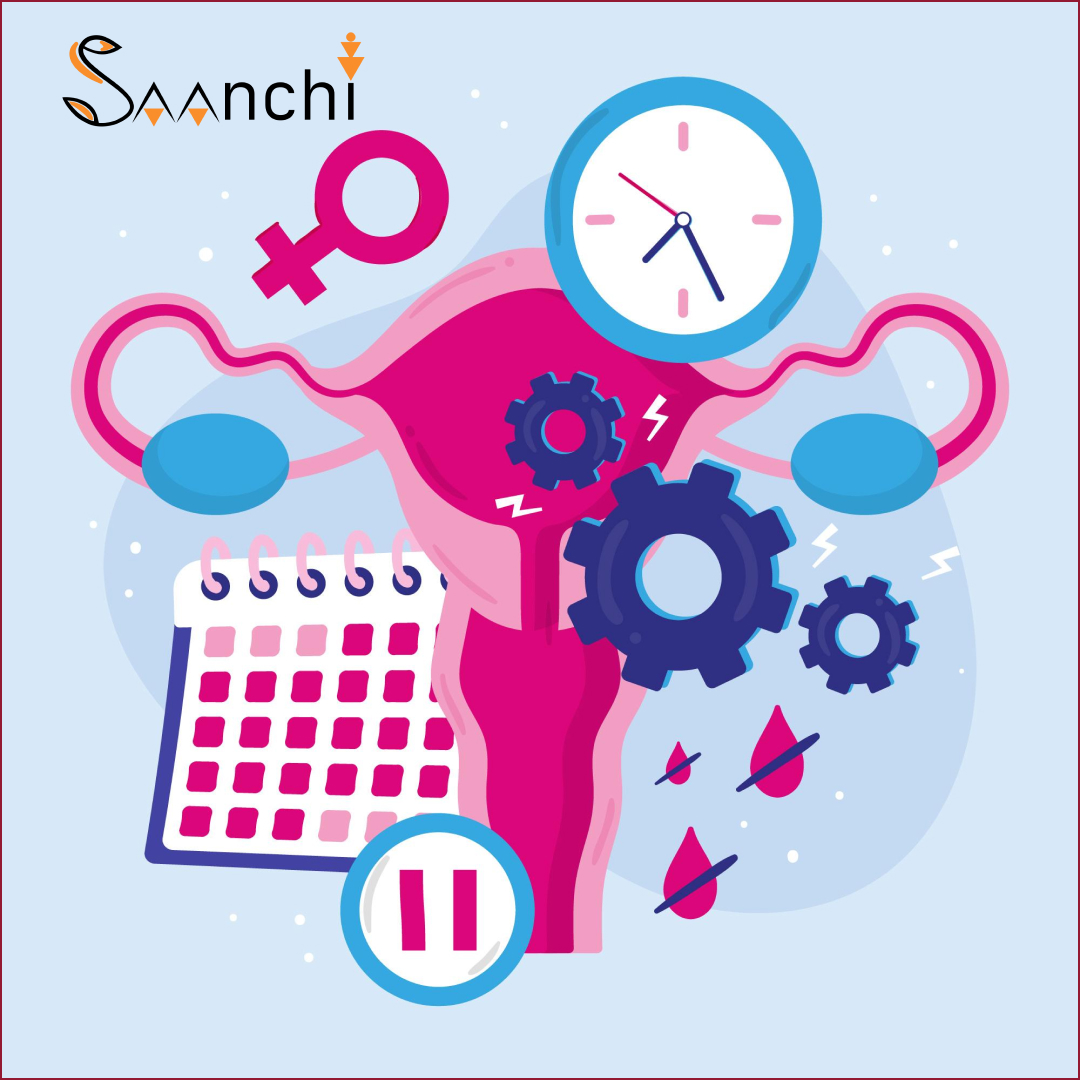The menstrual cycle is a natural process that plays a crucial role in a woman’s reproductive health. It is governed by a complex interplay of hormones that regulate the cycle’s different phases, ensuring that the body is prepared for a potential pregnancy each month. Understanding the role of hormones in the menstrual cycle can provide valuable insights into how the female body functions and highlight the importance of hormonal balance for overall health.
Hormonal Harmony: The Four Phases of the Menstrual Cycle
The menstrual cycle is divided into four main phases: the menstrual phase, the follicular phase, the ovulation phase, and the luteal phase. Each phase is characterized by specific hormonal changes that drive the cycle forward.
- Menstrual Phase
The menstrual phase marks the beginning of the menstrual cycle, typically lasting from 3 to 7 days. During this phase, the levels of estrogen and progesterone drop, leading to the shedding of the uterine lining, which exits the body as menstrual blood. This phase is essential for clearing out the old uterine lining, making way for the new one to develop.
- Follicular Phase
Following menstruation, the follicular phase begins. This phase usually spans from day 1 to day 14 of the cycle. The pituitary gland releases follicle-stimulating hormone (FSH), which stimulates the ovaries to produce several follicles. Each follicle contains an immature egg, but typically, only one follicle will mature fully. As the follicles grow, they secrete estrogen, which helps to rebuild the uterine lining in preparation for a possible pregnancy.
- Ovulation Phase
Ovulation occurs around the midpoint of the menstrual cycle, usually around day 14. The surge in luteinizing hormone (LH), triggered by the high levels of estrogen from the follicular phase, causes the mature follicle to release its egg into the fallopian tube. This is the most fertile period of the cycle, and the egg remains viable for about 24 hours. If sperm is present and fertilizes the egg, pregnancy can occur.
- Luteal Phase
The luteal phase lasts from ovulation until the start of the next menstrual period, roughly days 15 to 28. After releasing the egg, the empty follicle transforms into the corpus luteum, which secretes progesterone. Progesterone helps maintain the uterine lining, making it suitable for a fertilized egg to implant. If fertilization does not occur, the corpus luteum degenerates, leading to a drop in progesterone and estrogen levels, and the cycle begins anew with menstruation.
The Critical Role of Hormones
Hormones act as the body’s messengers, ensuring that each phase of the menstrual cycle progresses smoothly. The primary hormones involved include:
- Estrogen: Produced mainly by the ovaries, estrogen is crucial for developing the uterine lining and regulating the menstrual cycle. It peaks during the follicular phase and triggers the LH surge necessary for ovulation.
- Progesterone: Secreted by the corpus luteum after ovulation, progesterone maintains the uterine lining and supports early pregnancy. Its levels drop if fertilization does not occur, leading to menstruation.
- Follicle-Stimulating Hormone (FSH): Released by the pituitary gland, FSH stimulates the growth of ovarian follicles during the follicular phase.
- Luteinizing Hormone (LH): Also produced by the pituitary gland, LH triggers ovulation and the transformation of the follicle into the corpus luteum.
- Gonadotropin-Releasing Hormone (GnRH): Secreted by the hypothalamus, GnRH regulates the release of FSH and LH from the pituitary gland, orchestrating the menstrual cycle’s timing.
Hormonal Imbalances and Menstrual Health
Hormonal imbalances can disrupt the menstrual cycle, leading to various issues such as irregular periods, heavy bleeding, or missed cycles. Conditions like polycystic ovary syndrome (PCOS), thyroid disorders, and stress can all impact hormonal balance. Maintaining a healthy lifestyle, managing stress, and seeking medical advice when necessary are essential steps in supporting hormonal health and a regular menstrual cycle.
Saanchi Empowering Women and Girls
Understanding the role of hormones in the menstrual cycle is crucial for women’s health. At Saanchi, a project under the Draupadi Devi Welfare Organisation (DDWO), we are committed to empowering women and girls through education and awareness. Saanchi offers comprehensive programs on menstrual health, providing valuable information and resources to help women manage their cycles effectively. By breaking down taboos and promoting menstrual hygiene, Saanchi aims to create a supportive community where women can thrive. Join us in our mission to foster knowledge, health, and empowerment for all women.


